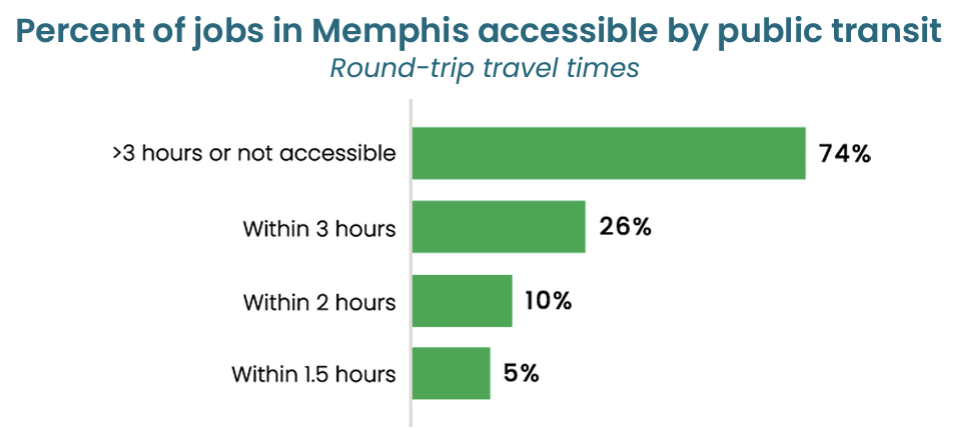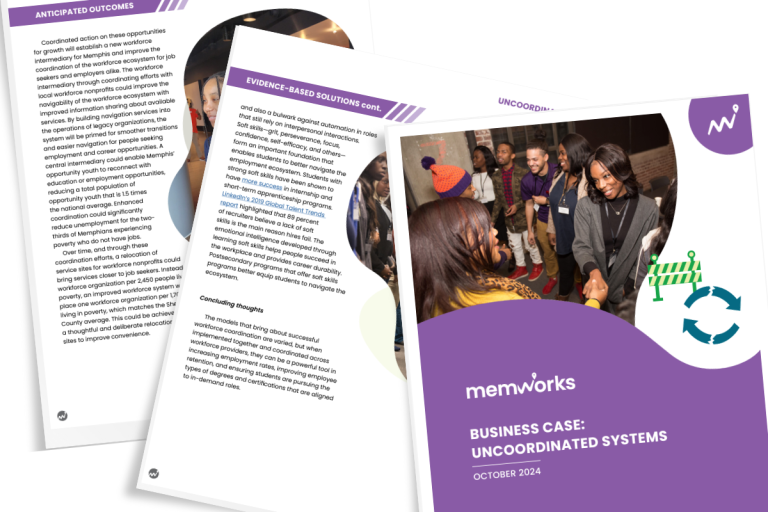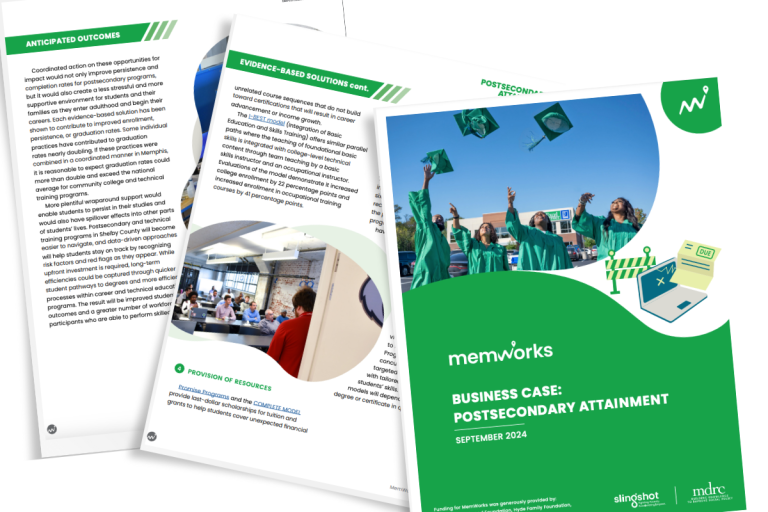Unreliable transportation limits access to employment and training opportunities
MemWorks has helped us identify the root causes that are impeding employment pathways for Memphians experiencing poverty. An accurate understanding of these roadblocks is absolutely essential, but without knowing how to effectively overcome these roadblocks, we are still unable to enable pathways to living-wage jobs.
We are excited to share evidence-based interventions that can help our community overcome these roadblocks. We are continuing our series this week on additional roadblocks that we acknowledge pose similarly severe challenges to Memphians. Because these roadblocks are not a core focus of the MemWorks effort, our research is focused and less expansive. We continue to maintain the same research standards across our work. This email introduces evidence-based practices to alleviate the persistent transportation challenges faced by job seekers living in poverty in Memphis.
Only 3 in 100 Memphians experiencing poverty live near public transit that runs every 15 minutes
Nearly 75 percent of jobs in Memphis are not accessible via public transit within a 3-hour round trip. Memphis ranks nearly last (41 of 42) among large urban areas for transit use per capita, with only two percent of Memphians taking transit to work. Memphis’ low population density makes innovative transportation solutions, including private transportation options, necessary to access workforce services and living-wage employers, yet owning a car is prohibitively expensive for many. This creates a massive gap in transportation access and numerous barriers to preparing for and obtaining living-wage jobs.

Several evidence-based models and programs address childcare challenges in other communities
Efficient and affordable public transportation is critical and needs to be coupled with alternative solutions to overcome Memphis’ transportation challenges. Urban development since the post-war era has created communities that are nearly impossible to serve comprehensively with cost-effective public transit systems. Acknowledging the depth of the challenge, there are several evidence-based examples that show promise in alleviating transportation challenges for job-seeking Memphians living in poverty:
- Bus Rapid Transit (BRT) systems represent a structured, government-led approach to reimagining public transportation. BRT systems operate on designated lines with special stations. Like trolley systems, BRT buses are able to control traffic lights to ensure the efficiency of the bus route. Unlike trolley and train systems, they are not limited by tracks, which are a costly investment. BRT lines can be adjusted over time to meet shifting demand.
- Demand-responsive public transportation has been tested and shown efficacy in Austria and Germany. Local public transportation authorities or their contractors can provide flexible public transport options during times of low demand. These services require a call-ahead or advance reservation but can enhance accessibility and convenience for a wide array of users because they will provide off-route services within a specific area. Groove On-Demand is an example of Memphis’ demand-responsive transportation efforts.
- Carpooling initiatives are already in place in some formats in Memphis. Companies leverage technology and partnerships to encourage shared commuting. Incentives like preferential parking and discounts on commuting related costs make shared commuting more attractive and available. Depending on the commuting location and the community, carpooling may be more accessible for some than others.
- MyCityRides, a Memphis nonprofit, addresses transportation barriers with a unique scooter lease-to-own program. This program allows people to lease a motorized scooter for a monthly fee spread over three years. MyCityRides also provides the training to operate the scooter and maintains insurance coverage.
- E-bikes and bike share programs offer a flexible bridge to public transit and extend public transit’s reach beyond traditional routes. Bike share programs, when designed thoughtfully, can provide a last mile connector to communities not served by public transit. E-bike subsidies offered by cities enable residents to purchase their own e-bike, which provides users with an additional transportation option and extended range. Bicycling-oriented commuting is dependent both on the safety and accessibility of local roads and the weather, which both pose major challenges in Memphis.
Many initiatives are already in place in Memphis to help alleviate transportation accessibility challenges. While several exist in pilot or start-up phases, at scale, they could make a measurable impact on expanding transportation accessibility for Memphians living in poverty. The result will be reduced barriers to pursuing living wage career paths for Memphis’ job seekers.





